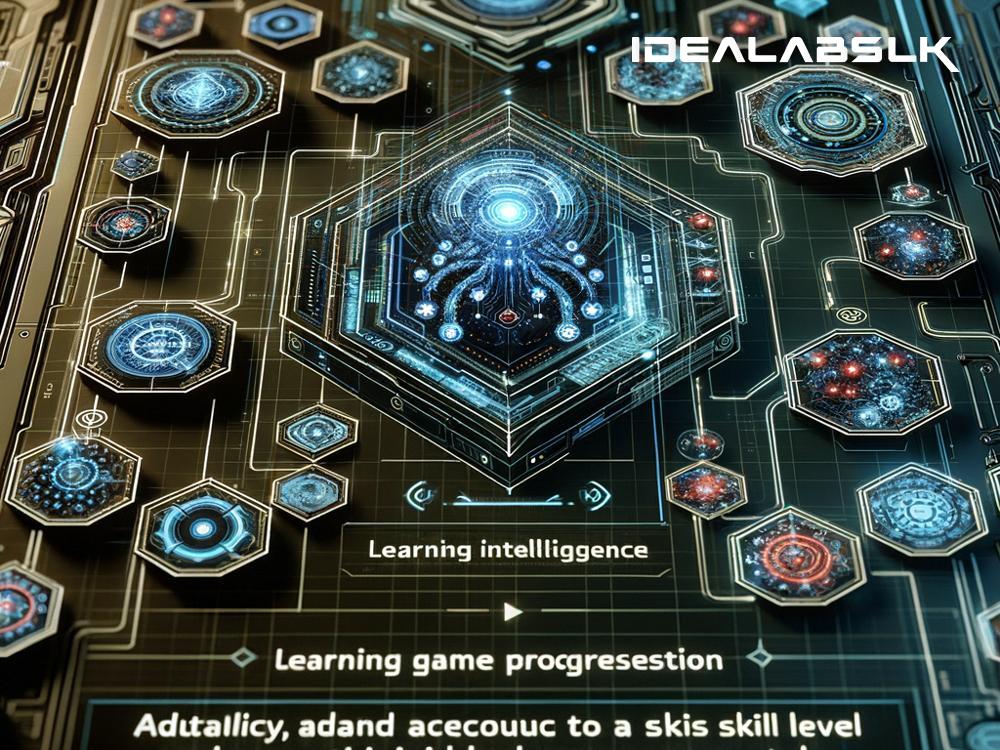How AI is Changing the Way We Level Up in 2025: Adaptive Progression Systems
The world of gaming and education is shifting under our feet, and at the heart of this seismic change is Artificial Intelligence (AI). In 2025, AI isn't just a tool; it's transforming how we learn, play, and evolve in virtual environments and beyond. One of the most compelling developments is in Adaptive Progression Systems. These systems are rewriting the rules on how we level up, both in games and in learning modules. Let's dive into how AI is turning the concept of leveling up on its head and why it’s a game-changer.
Breaking Down Leveling Up
Traditionally, leveling up in games or educational software has been a linear process. You complete a set of tasks, gain points, and then move on to the next predefined challenge. It’s a one-size-fits-all approach where every player or learner follows the same path. But humans aren’t cookie-cutter models. We learn, adapt, and react in uniquely personal ways. This is where AI steps in.
Enter AI and Adaptive Progression Systems
Adaptive Progression Systems use AI to create personalized learning and playing experiences. The AI observes how you interact with the game or learning module, paying attention to your strengths, weaknesses, and even your style of engagement. Based on this data, it adjusts your path forward. The result? A tailored experience that adapts in real-time to your needs and preferences.
For Gamers: A New Level of Immersion
Imagine playing a role-playing game where the quests, challenges, and even storylines adapt based on your choices, performance, and in-game style. If you're struggling with combat, the game might offer side quests to practice your skills or adjust the difficulty dynamically. Love puzzle-solving? The AI could weave more intricate puzzles into your adventure. This dynamic adjustment keeps the game challenging yet accessible, enhancing immersion and enjoyment.
For Learners: From Drudgery to Engagement
In educational contexts, Adaptive Progression Systems are a game-changer. Picture a learning app that adjusts the complexity of problems based on how well you’re grasping a topic or introduces new ways of explaining concepts when it notices you’re stuck. It could even align learning materials with your interests (think applying math in a space exploration setting for space enthusiasts). This personalized approach could transform learning from a one-size-fits-all chore into an engaging, tailored journey.
Behind the Scenes: How It Works
At the heart of these adaptive systems is machine learning, a subset of AI. Machine learning algorithms analyze vast amounts of data generated by players or learners to identify patterns and make decisions. This analysis happens in milliseconds, allowing for real-time adjustments.
The Benefits and Challenges
Benefits:
- Personalization: Tailored experiences ensure that each user gets the most out of their time, whether they're playing a game or learning a new skill.
- Accessibility: By dynamically adjusting difficulty, these systems can make games and learning modules more accessible to a broader audience.
- Engagement: Personalization and well-paced challenges lead to higher engagement levels, keeping users hooked and willing to come back for more.
Challenges:
- Privacy Concerns: Gathering data to tailor experiences raises concerns about privacy and data security. Transparent data policies and security measures are critical.
- Complexity in Development: Creating these AI systems is no small feat. It requires significant investment and expertise in AI and machine learning.
- Balancing Act: Finding the right balance in customization without making experiences feel disjointed or overly tailored is a delicate endeavor.
Looking Ahead
As we move deeper into the 2020s, Adaptive Progression Systems powered by AI are set to revolutionize how we interact with software, whether for entertainment, education, or beyond. These systems promise more engaging, accessible, and enjoyable experiences tailored to individual needs and preferences. However, as with any technological advancement, navigating challenges like privacy, development complexity, and maintaining a balanced user experience will be key to unlocking their full potential.
In conclusion, AI is not just changing the game; it's changing how we level up in every sense. From gaming to learning, adaptive progression systems are paving the way for a future where our digital journeys are as unique as we are. As we embrace these changes, one thing is clear: the path ahead is not just about advancing to the next level; it’s about creating a journey that's uniquely ours.
Welcome to the future of leveling up – it's personalized, it's adaptive, and it's powered by AI.

